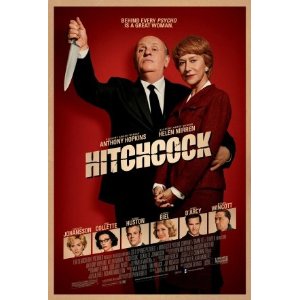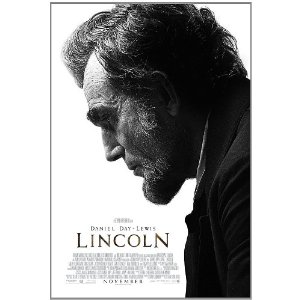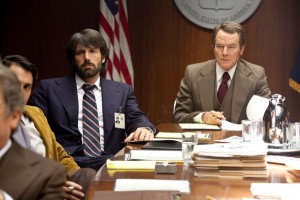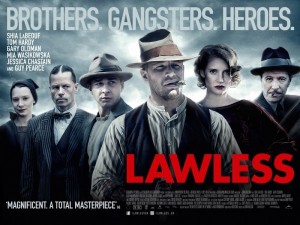Hitchcock
Posted on November 22, 2012 at 6:00 pm
Alfred Hitchcock loved to scare people and he did it very, very well. This highly entertaining story of the making of one of his most controversial (and terrifying) films stars Sir Anthony Hopkins as the portly British
He did it well because he understood fear from the inside. He was drawn to what repelled him and repelled by what attracted him. Hitchcock produced and directed film and television programs that are still, more than half a century later classics of suspense and horror. He released a series of glossy, sexy hits like “Rear Window” and “To Catch a Thief” in the 1950’s. And then he decided to do a film that was not glossy, sexy or romantic, inspired by the horrific crimes of body-snatcher/killer Ed Gein. Hitchcock had a contract with Paramount, but the studio was reluctant about the grisliness of the storyline. Hitchcock took out a mortgage and financed the production himself, using crew from his television show and shooting in black and white to save money. (He also said the film would be too gory in color.)
Hopkins is masterful as Hitchcock. He is subsumed in make-up and padding but it is a performance, not a caricature. He shows us the great director’s playfulness and wit. We see the way he struggles with his repressions and internal tortures and the way he is able to draw on them, almost clinically, to create popular movies that happen to be cinematic masterpieces. What took the world of movies so long to match Hopkins with Mirren? She is marvelous here as the wife who understands him thoroughly but sometimes wishes he would try to understand her. Scarlett Johansson is sensational as Janet Leigh, the consumate professional who is that rarest find in Hollywood, a truly nice person, and James D’Arcy nails Anthony Perkins’ tremulousness. It’s a surprisingly tender-hearted story as well as a tribute to the Hitchcocks and all those who love to make movies.
Parents should know that this film includes some strong and disturbing material and “boo”-style scares, depiction of real-life serial murderer Ed Gein and fictional killer Norman Bates, some graphic images, sexual references and situations, and partial nudity.
Family discussion: Why was it hard for Alfred to acknowledge Alma’s contributions? Why did he like to scare people? Why do people like to be scared? What should Alma have done?
If you like this, try: “Psycho” and other Hitchcock classics like “Rear Window” and “The Birds” and the books Alfred Hitchcock and the Making of Psycho by Stephen Rebello and the book-length interview Hitchcock/Truffaut by Francois Truffaut.




